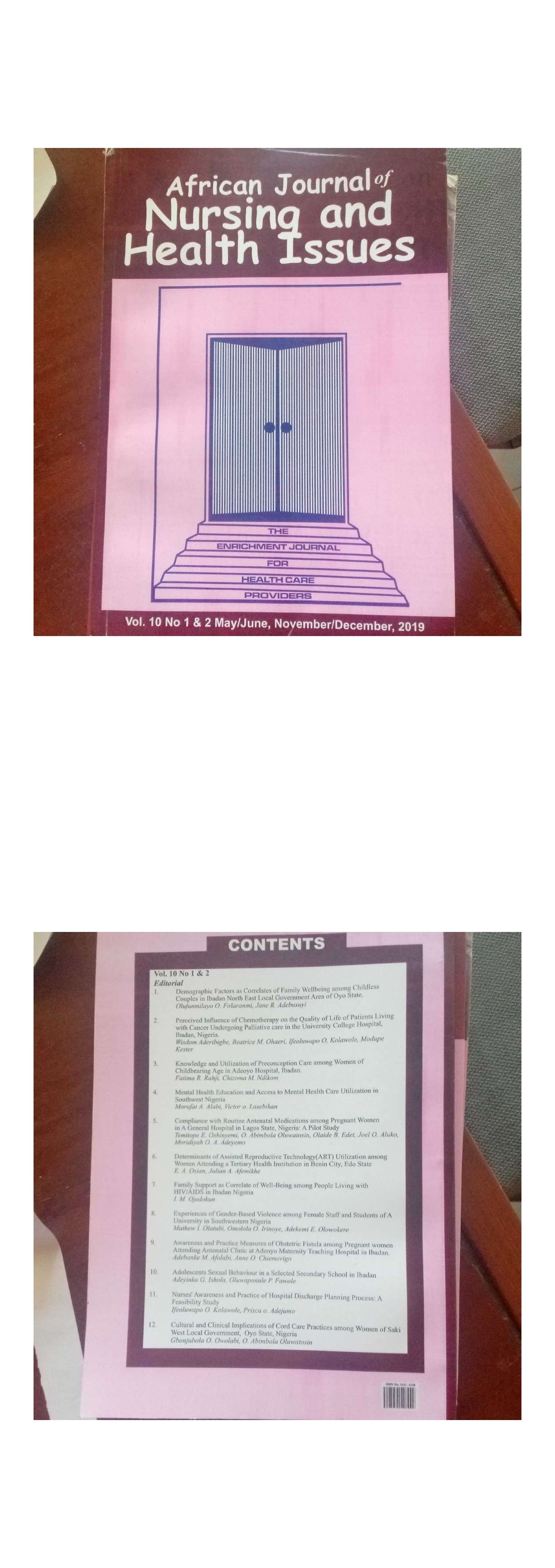
FAMILY SUPPORT AS CORRELATE OF WELL-BEING AMONG PEOPLE LIVING WITH HIV/AIDS IN IBADAN NIGERIA
Background: The study examines family support as a correlate of well-being among people living with HIV/AIDS (PLWHA). The affected people are men and women in their most productive and reproductive years, needing the support of family members.
Methodology: The study adopts a descriptive research design, and the population consists of 297 PLWHA. A convenient sampling method was adopted to select the respondents from designated clinics in Ibadan. A self-developed, validated questionnaire (Likert type) tagged (FSCW) with a reliability coefficient of 0.86 was used as an instrument for data collection. The instrument was administered on PLWHA with the help of six trained research assistants. The collected data was analyzed using frequency counts, percentages, and descriptive statistical tools.
Results: The findings revealed that family support had a significant influence on the health of PLWHA (mean =2.54). Also, the finding revealed that family support had a significant influence on the sociological well-being of PLWHA (mean =2.39). In the same vein, family support had a significant influence on the psychological well-being of PLWHA (mean = 2.35).
Conclusion: Based on these findings, it was concluded that adequate family support enhances the health and psychosocial wellbeing of PLWHA. This implies that PLWHA could live longer with the support of family members. It was recommended that the family members provide the necessary social and psychological support to improve the health status of PLWHA. Health social workers in particular and health workers in general also have significant roles to play in reducing the stigmatization of PLWHA.
